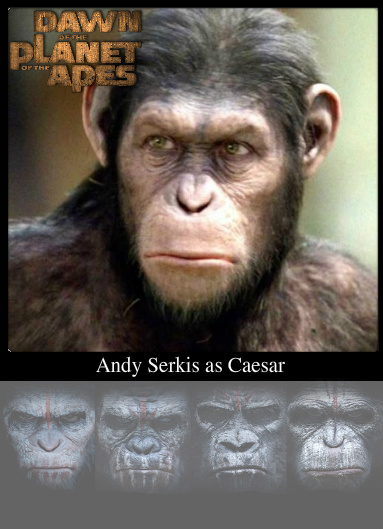Planet of the Apes
Planet of the Apes is an American media franchise consisting of films, books, television series and other media about a world where humans and intelligent apes clash for control. The series began with French author Pierre Boulle's 1963 novel La Planète des Singes, translated into English as both Planet of the Apes and Monkey Planet. The 1968 film adaptation, Planet of the Apes, was a critical and commercial success, initiating a series of sequels, tie-ins, and derivative works. Originally owned by producer Arthur P. Jacobs' APJAC Productions, 20th Century Fox has owned the franchise's rights and privileges since 1973.[1]
The 1968 film was followed by four sequels between 1970 and 1973: Beneath the Planet of the Apes, Escape from the Planet of the Apes, Conquest of the Planet of the Apes, and Battle for the Planet of the Apes. It also spawned two television series in 1974 and 1975: the live-action Planet of the Apes and the animated Return to the Planet of the Apes. After over ten years in "development hell", Tim Burton directed a film remake, Planet of the Apes, in 2001. A new reboot series commenced in 2011 with Rise of the Planet of the Apes; this was followed in 2014 by Dawn of the Planet of the Apes, with another sequel planned. All of these versions have in turn led to other media and merchandising tie-ins, including books, comics, games, and toys.
The 1968 film was followed by four sequels between 1970 and 1973: Beneath the Planet of the Apes, Escape from the Planet of the Apes, Conquest of the Planet of the Apes, and Battle for the Planet of the Apes. It also spawned two television series in 1974 and 1975: the live-action Planet of the Apes and the animated Return to the Planet of the Apes. After over ten years in "development hell", Tim Burton directed a film remake, Planet of the Apes, in 2001. A new reboot series commenced in 2011 with Rise of the Planet of the Apes; this was followed in 2014 by Dawn of the Planet of the Apes, with another sequel planned. All of these versions have in turn led to other media and merchandising tie-ins, including books, comics, games, and toys.

